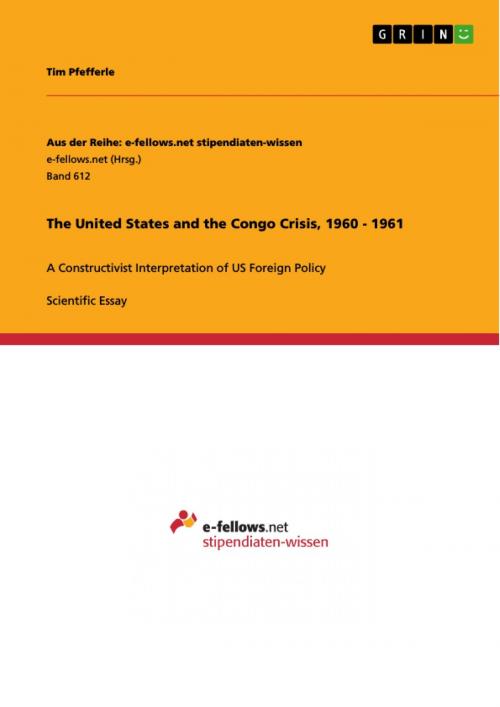The United States and the Congo Crisis, 1960 - 1961
A Constructivist Interpretation of US Foreign Policy
Nonfiction, Social & Cultural Studies, Political Science, International, International Relations| Author: | Tim Pfefferle | ISBN: | 9783656338833 |
| Publisher: | GRIN Verlag | Publication: | December 21, 2012 |
| Imprint: | GRIN Verlag | Language: | English |
| Author: | Tim Pfefferle |
| ISBN: | 9783656338833 |
| Publisher: | GRIN Verlag |
| Publication: | December 21, 2012 |
| Imprint: | GRIN Verlag |
| Language: | English |
Scientific Essay from the year 2012 in the subject Politics - International Politics - Region: Africa, grade: A, University of Miami (Department of International Studies), course: American Imperialism, language: English, abstract: An assessment of the role played by the United States in the so-called Congo Crisis, focusing on the initial stage from 1960 to early 1961. Following a rendering of the historical context, US foreign policy will be analyzed from a three-dimensional perspective. Thus, Realist, Marxist, and Constructivist theories of International Relations are employed to provide an interpretation of the sources and nature of US policy during the Congo Crisis. In conclusion, it will be argued that Constructivism provides the most comprehensive explanatory model to illustrate US foreign policy.
Scientific Essay from the year 2012 in the subject Politics - International Politics - Region: Africa, grade: A, University of Miami (Department of International Studies), course: American Imperialism, language: English, abstract: An assessment of the role played by the United States in the so-called Congo Crisis, focusing on the initial stage from 1960 to early 1961. Following a rendering of the historical context, US foreign policy will be analyzed from a three-dimensional perspective. Thus, Realist, Marxist, and Constructivist theories of International Relations are employed to provide an interpretation of the sources and nature of US policy during the Congo Crisis. In conclusion, it will be argued that Constructivism provides the most comprehensive explanatory model to illustrate US foreign policy.















